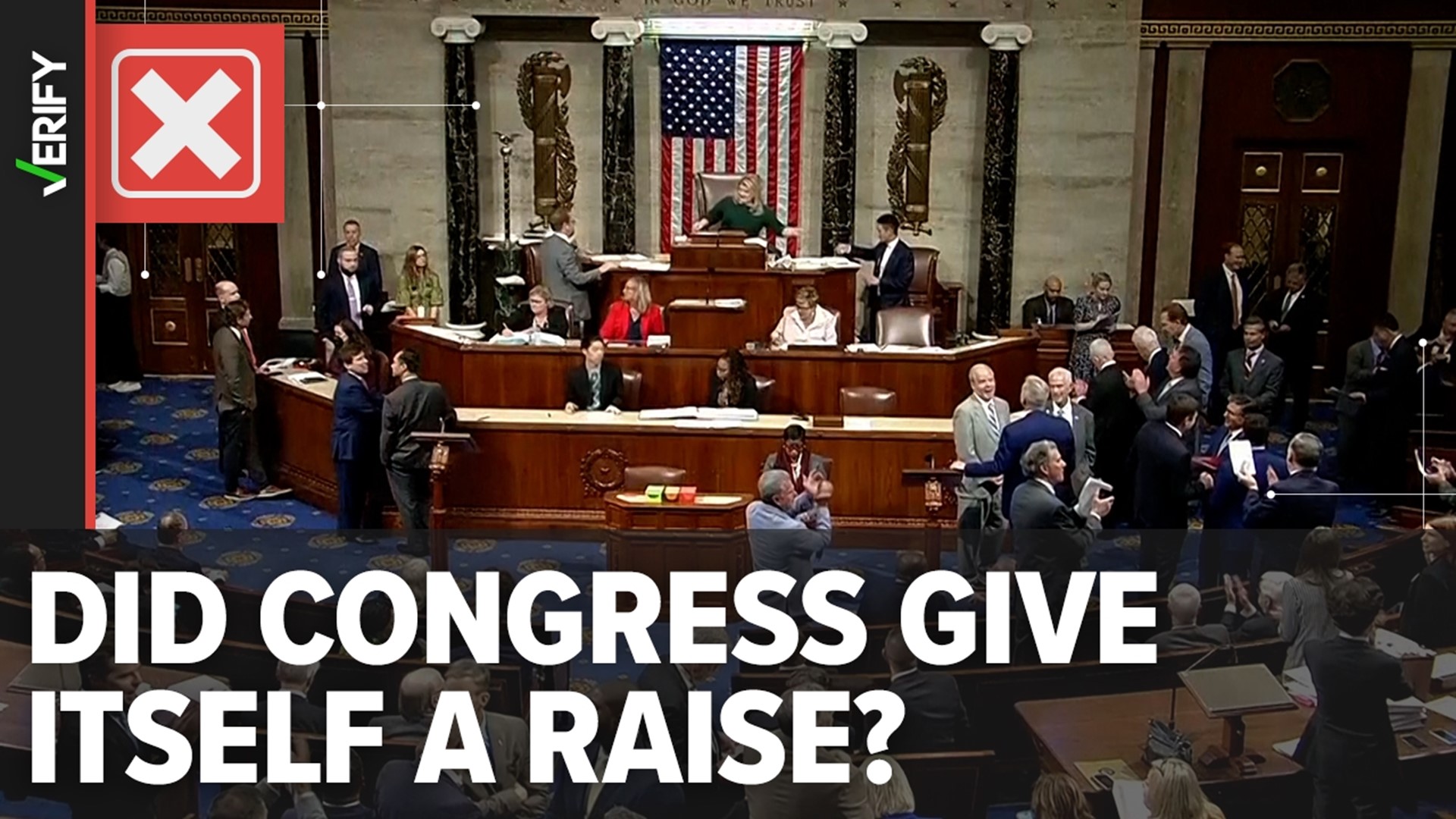On Sept. 30, Congress narrowly avoided a government shutdown by passing stopgap spending bills that will keep federal agencies funded for another 45 days.
The last-minute agreement will prevent lapses in service and employee furloughs as Congress works to reach a deal on a 2024 spending package.
As the deal was being debated, Rep. Rosa DeLauro (D-Conn.) accused House Republicans of attempting to squeeze in a pay raise for members of Congress, even as the federal government teetered on closing altogether.
VERIFY viewer John wanted to know whether that was true.
THE QUESTION
Did Congress give itself a pay raise in the deal to prevent a government shutdown?
THE SOURCES
THE ANSWER
No, Congress did not give itself a pay raise in the deal to prevent a government shutdown.
WHAT WE FOUND
The yearly spending package is also known as the omnibus appropriations bill. It contains numerous smaller bills, each of which allocates funding to a part of the federal government. One of those bills, the Legislative Branch Appropriations Act, funds Congress. It pays for member salaries, staff salaries and office expenses.
The amount members of Congress get paid was set by the Ethics Reform Act of 1989. One provision of that act says that each year, members should receive a cost-of-living adjustment to their pay, based on a formula used for many federal employees.
However, that adjustment has only occasionally been made in practice. Congress has elected numerous times – including every year since 2009 – to block the increase and keep their pay the same.
This is usually done via a line in the omnibus spending bill, historically labeled section 6. This section is not contained within the Legislative Branch Appropriations Act, but rather in a preface to the entire package. That distinction became an issue during the recent negotiations.
In late September, the House and Senate each drafted their own stopgap proposals to keep the government open, called a continuing resolution. Both versions allocated funding primarily by simply listing the titles of the smaller bills from last year’s appropriations package they wanted to renew. Both versions listed the Legislative Branch Appropriations Act.
However, the Senate version also copied over the language from section 6, while the House version did not.
Some Democrats argued this meant the House version – which was written by the Republican conference, whereas the Senate version was written by a bipartisan coalition – failed to block the cost-of-living adjustment for members of Congress, and would therefore effectively result in a raise.
House Republicans disputed that. Cost-of-living increases don’t go into effect until January, and since the continuing resolution only covers the next 45 days, members argued it could not possibly fund a raise that wouldn’t take effect until after the resolution expired.
Nonetheless, to provide certainty, Rep. Mario Diaz-Balart (R-Fla.) proposed an amendment to add the Senate’s section 6 language and definitively prevent any cost-of-living adjustment from being authorized in the resolution. The amendment was approved by unanimous consent.
As a result, the final text of the now-passed law specifically prevents Congress from receiving a raise.

